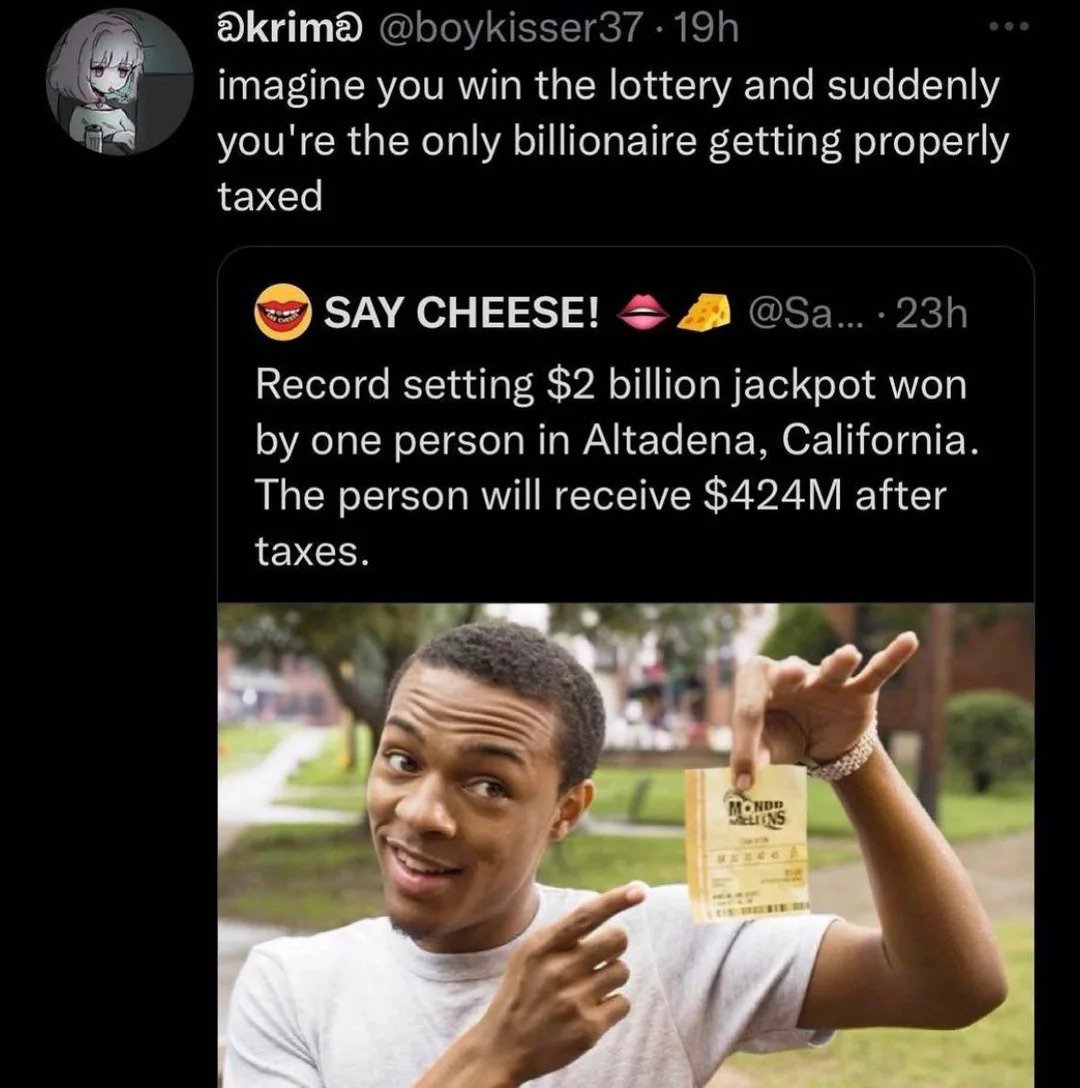this post was submitted on 30 Dec 2024
1137 points (99.1% liked)
196
16800 readers
1864 users here now
Be sure to follow the rule before you head out.
Rule: You must post before you leave.
founded 2 years ago
MODERATORS
you are viewing a single comment's thread
view the rest of the comments
view the rest of the comments

You're walking down the street and see a sign in a new sandwich place saying they have a three-for-one deal on, buy any one sandwich and get two sandwiches completely free. Sounds like a great deal, it might be a bit much but you skipped breakfast today and you can always keep one for later anyway, right? So you head inside and think about what you want, maybe you're cutting back on red meat and you're tired of chicken so you go with a tuna or cheese sandwich. You get to the counter to pick up your tuna+cheese sandwich, the worker hands over your two freebies and you walk out. Turns out you're hungrier than you thought so you practically inhale your tuna+cheese, barely savouring the flavour. You reach for your second sandwich but when you unwrap it you discover it's not the same as the one you ordered; it's bread with a thin smear of butter, technically it is a sandwich but it's definitely not what you wanted or expected when you ordered.
Did you get scammed? Are you okay with that since you still got one sandwich even though you chose that vendor because they advertised three?
It really shouldn't be a controversial statement to say that lying to people to get their money is wrong. If it really makes no difference as you're suggesting why can't they just advertise the real value instead?
Not gonna read that incredibly tortured analogy. I hope you took it out back and shot it after you did those awful longwinded things to it though.
They do note the lump non-annuity value. The numbers I pulled were off the powerball website and were right next to each other. Different states (and even municipalities possibly.) tax differently (not at all in some cases), so its not as if they can give a solid number there.
Okay, I'll simplify. Store advertises three sandwich. You buy three sandwich. You get one sandwich. Store says fees+taxes ate other sandwiches. You say it's fine, you got sandwich. I say it's not, store lied.
They absolutely can give a solid number even when a lottery runs in areas with different taxes, they simply choose not to because they make more money that way and for some reason you lack regulation there. See for instance here where the prize money may be partially subjected to income tax, meaning tax varies wildly depending on the winner's other income:
So there's three obvious choices: mislead customers, calculate the correct prize after relevant taxes and advertise that, or give a fixed value and eat the cost of any taxes themselves. They chose the first one.